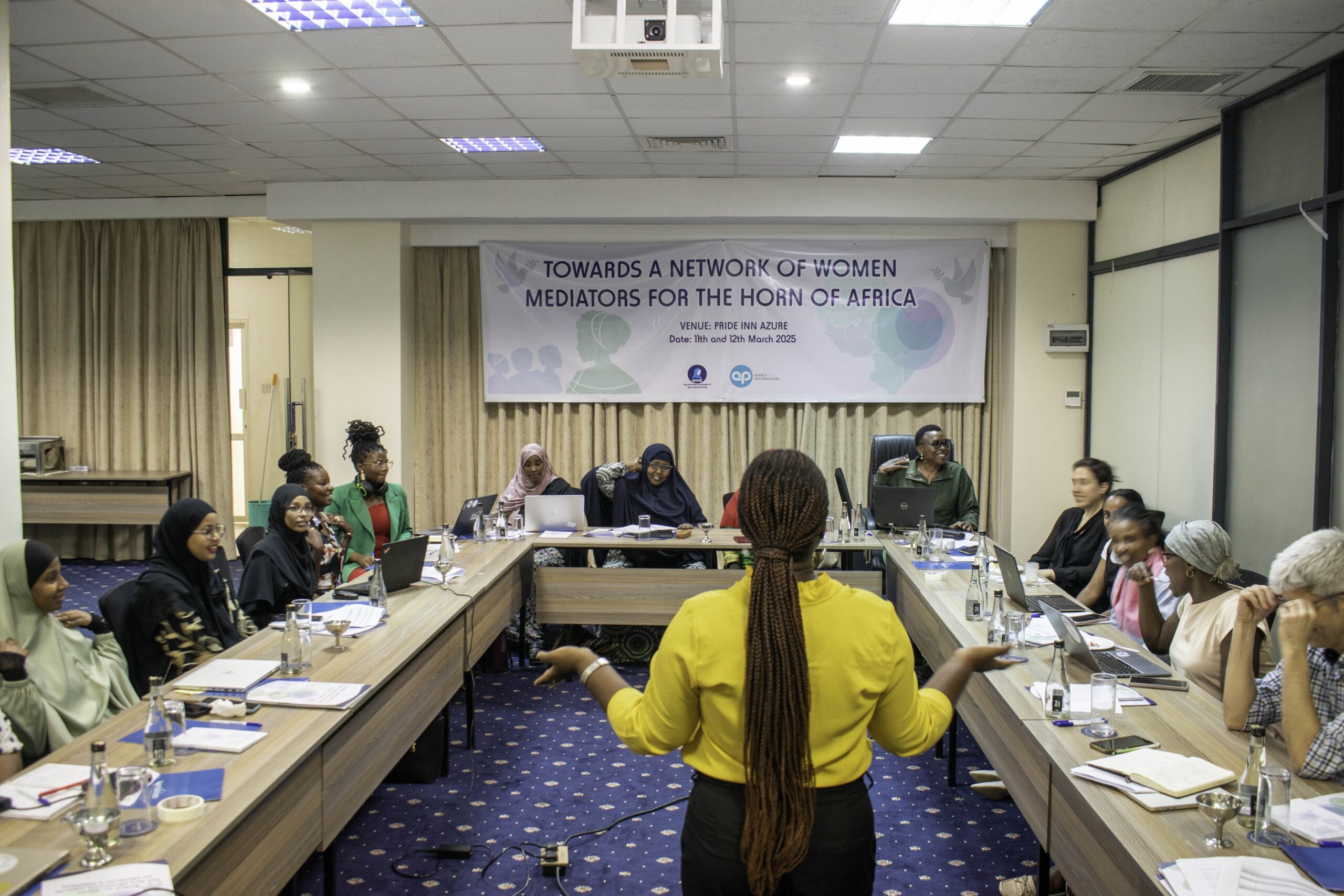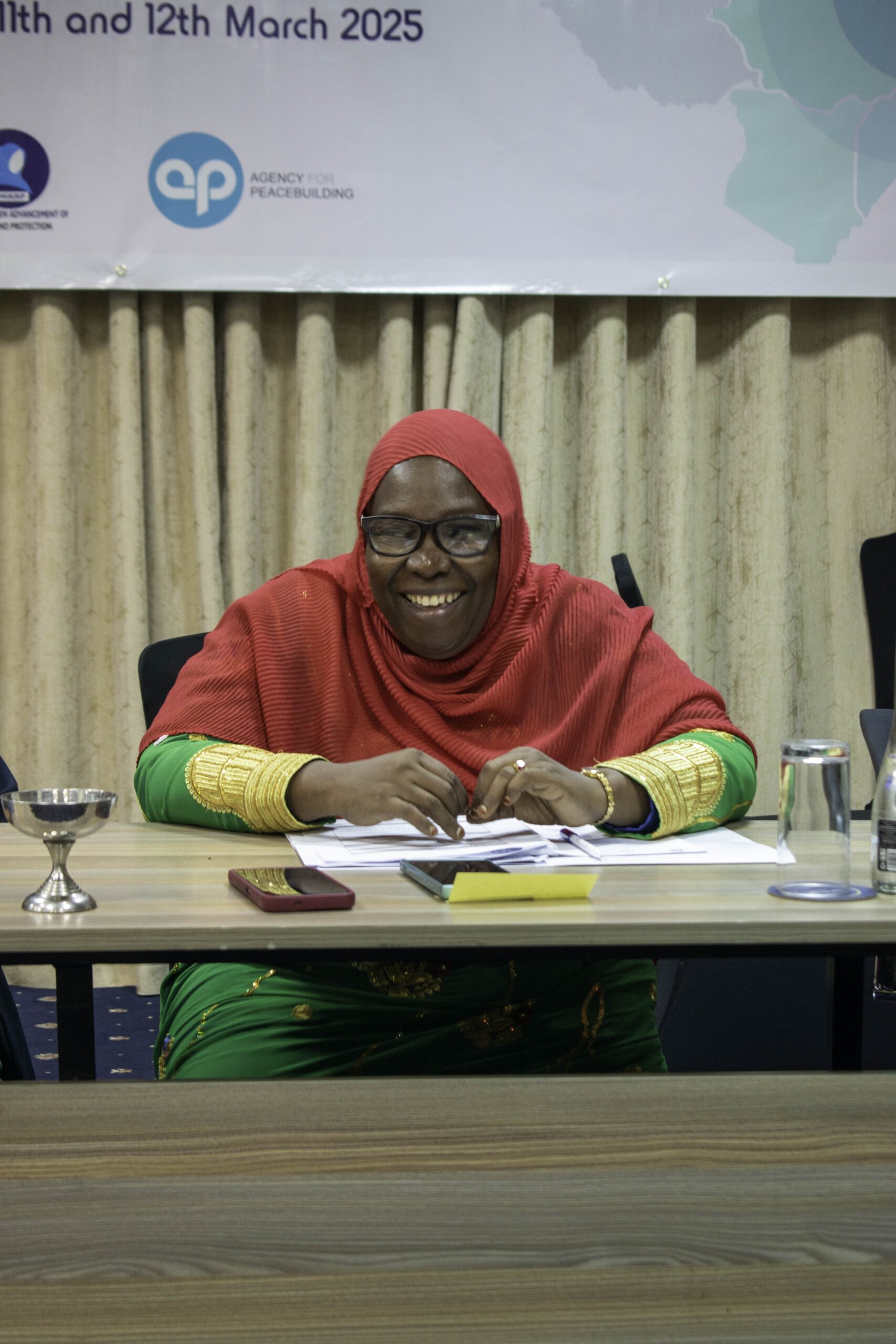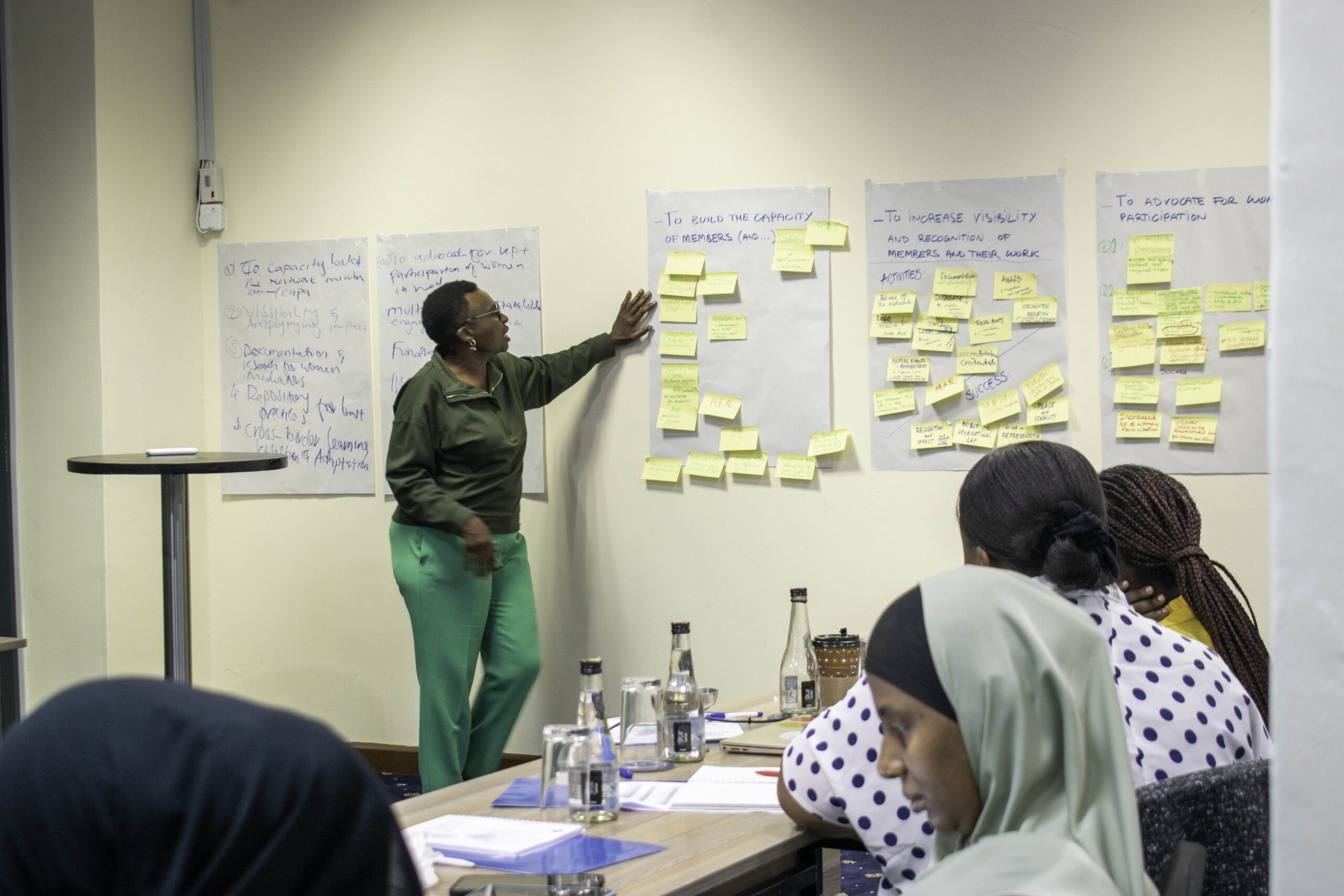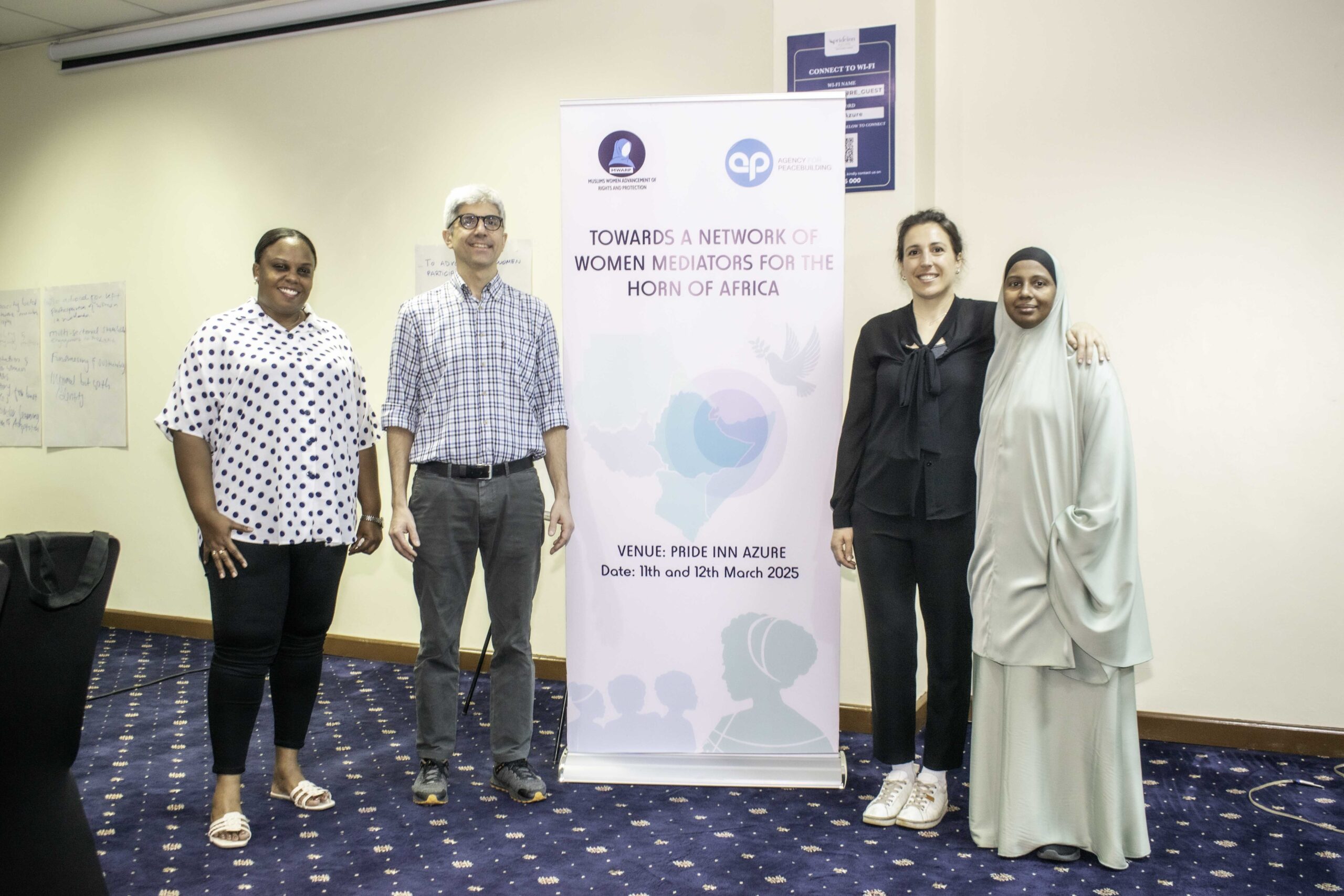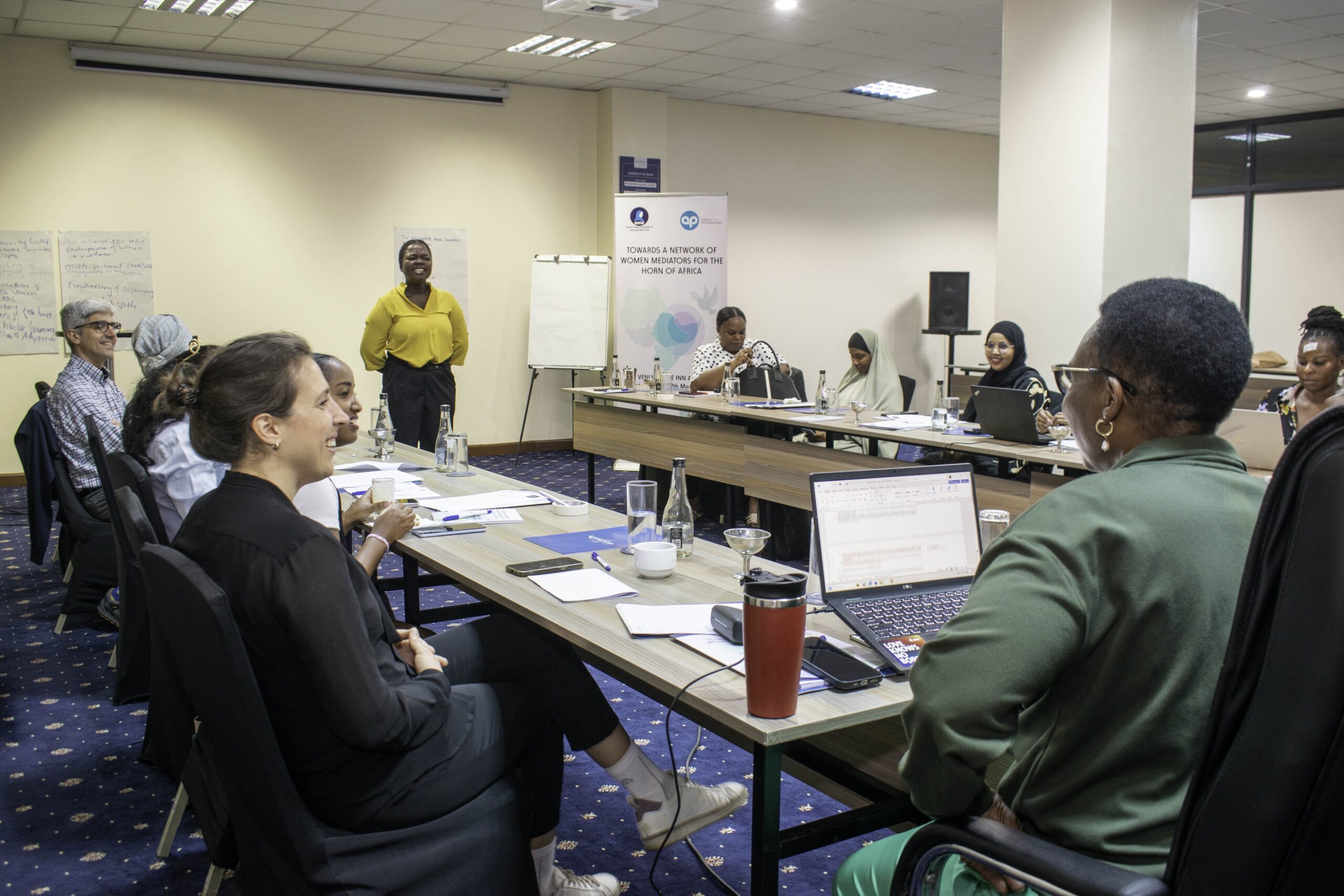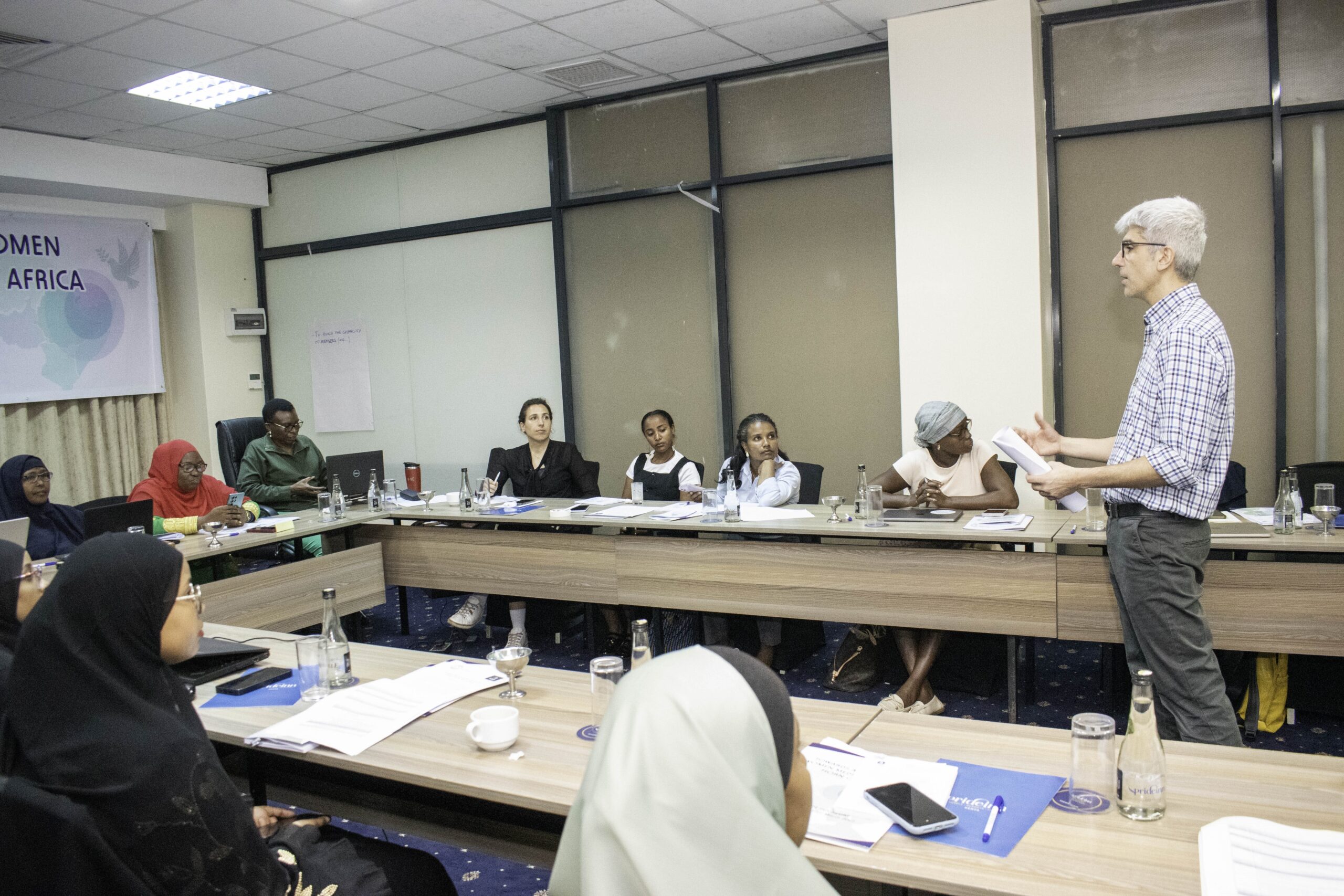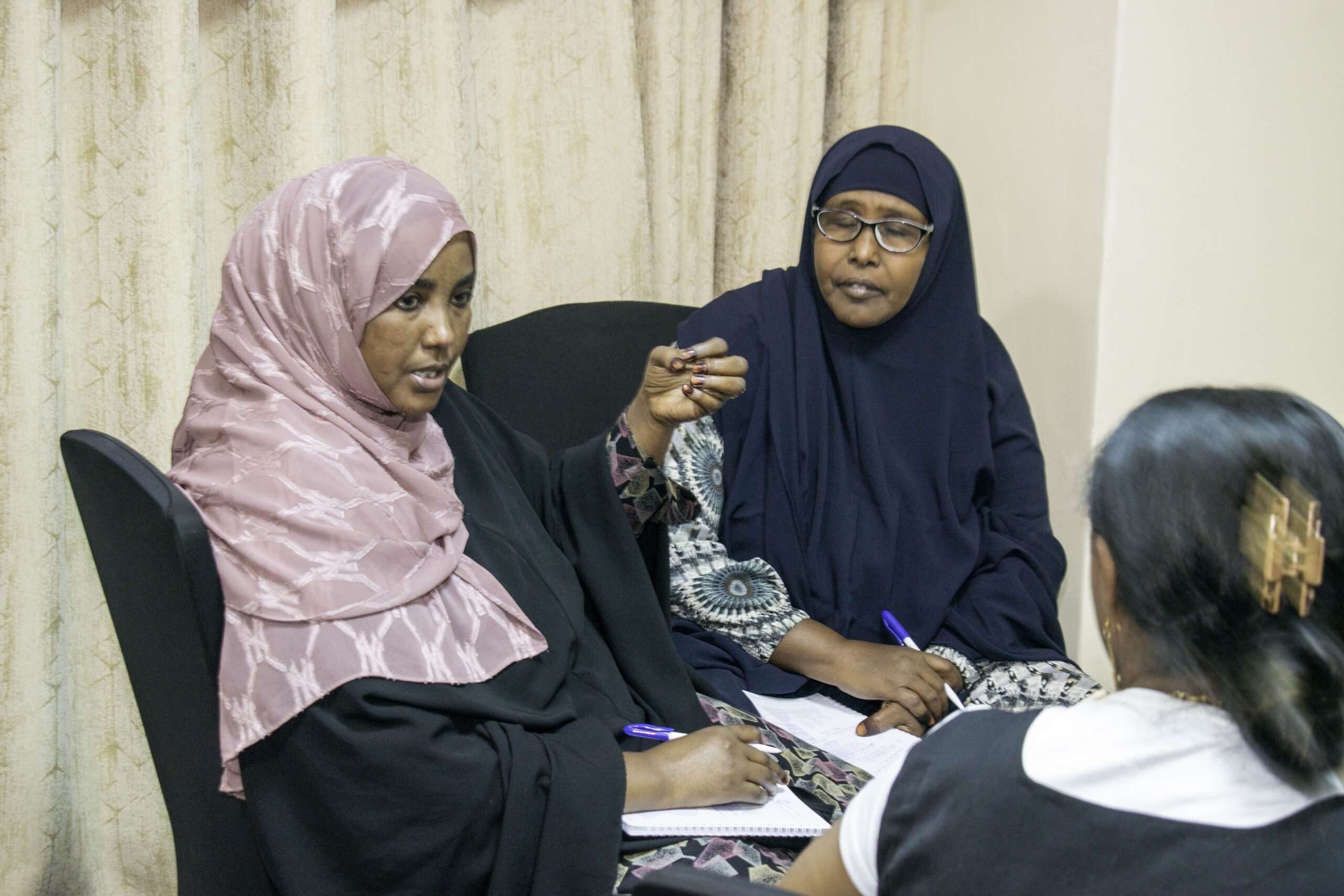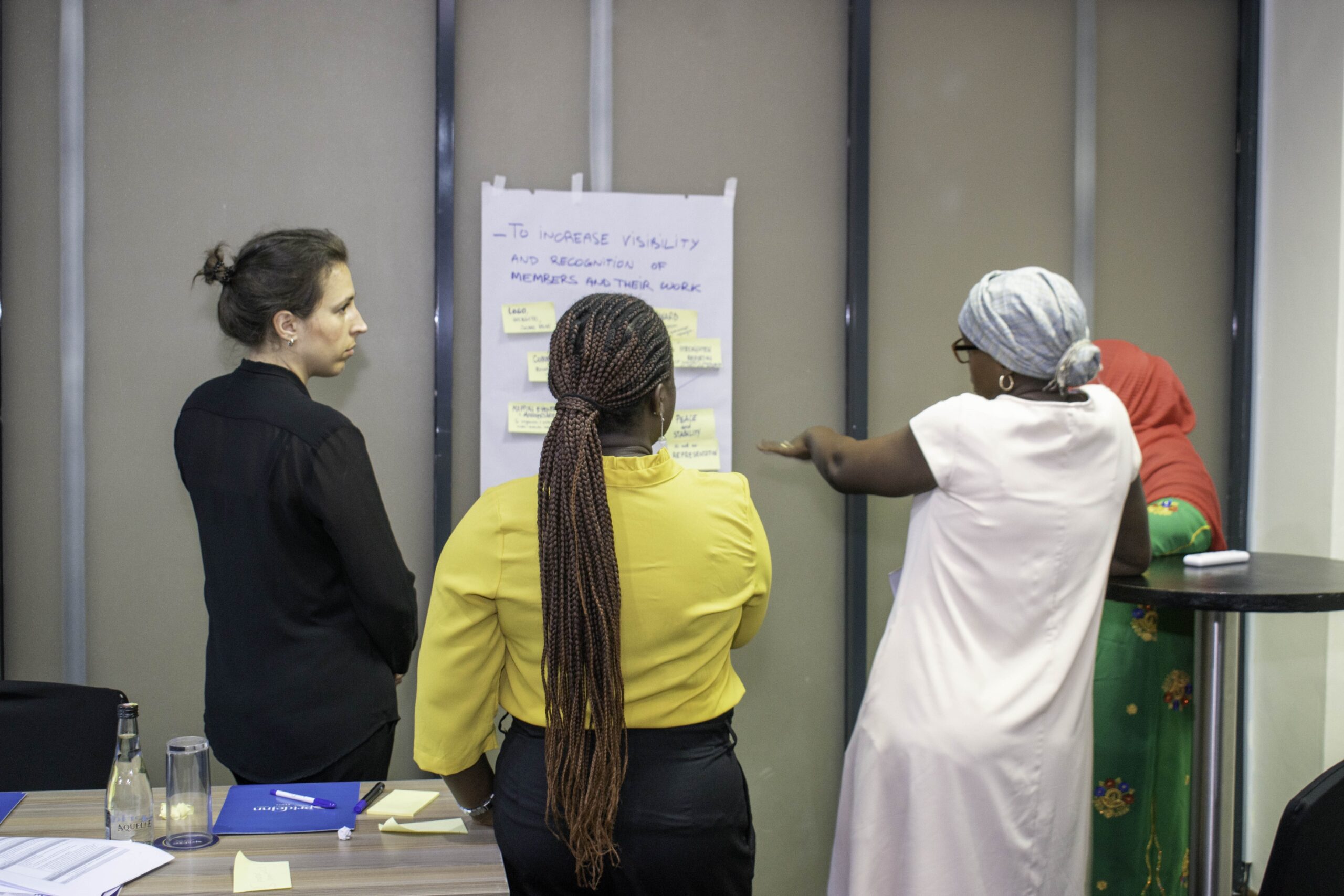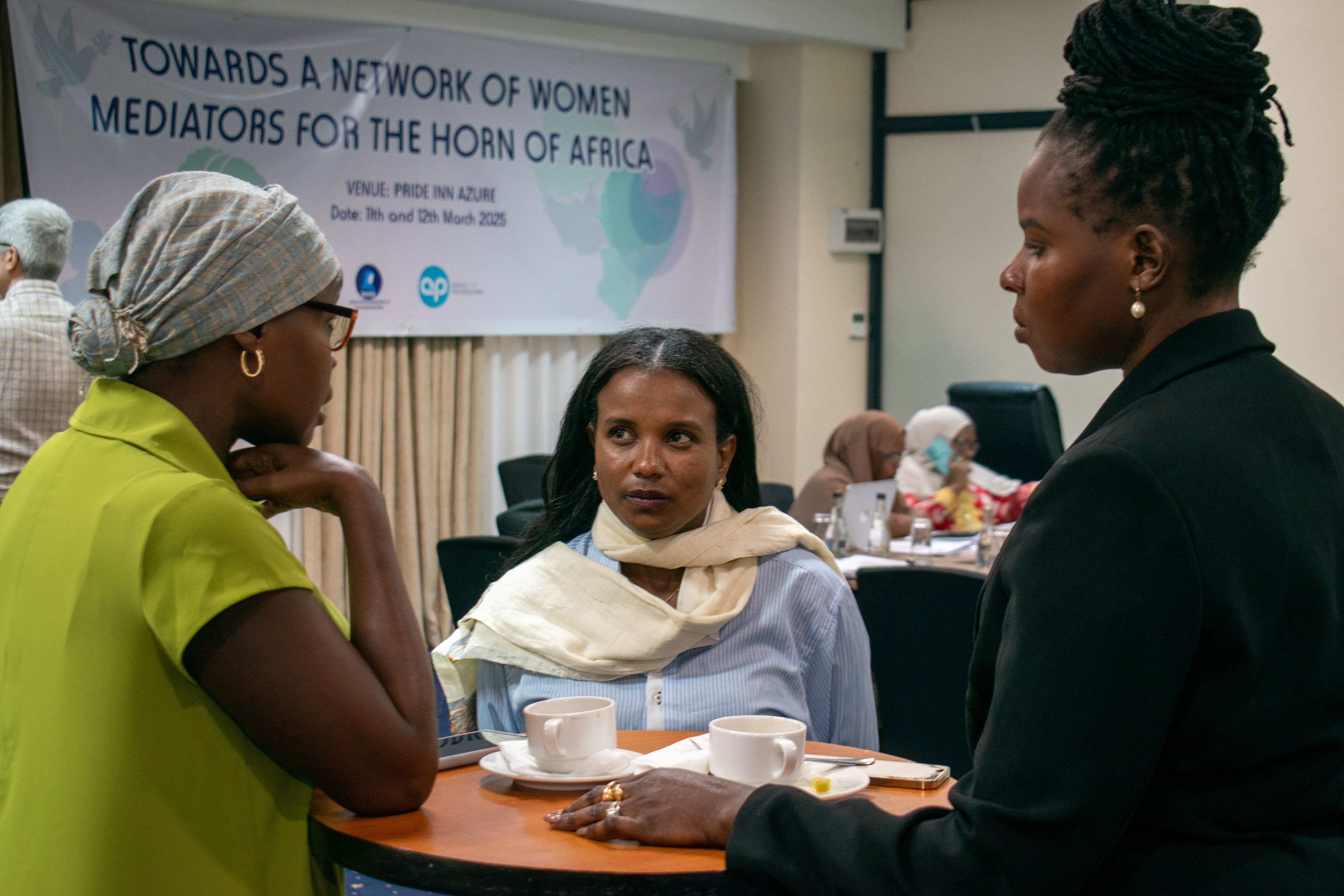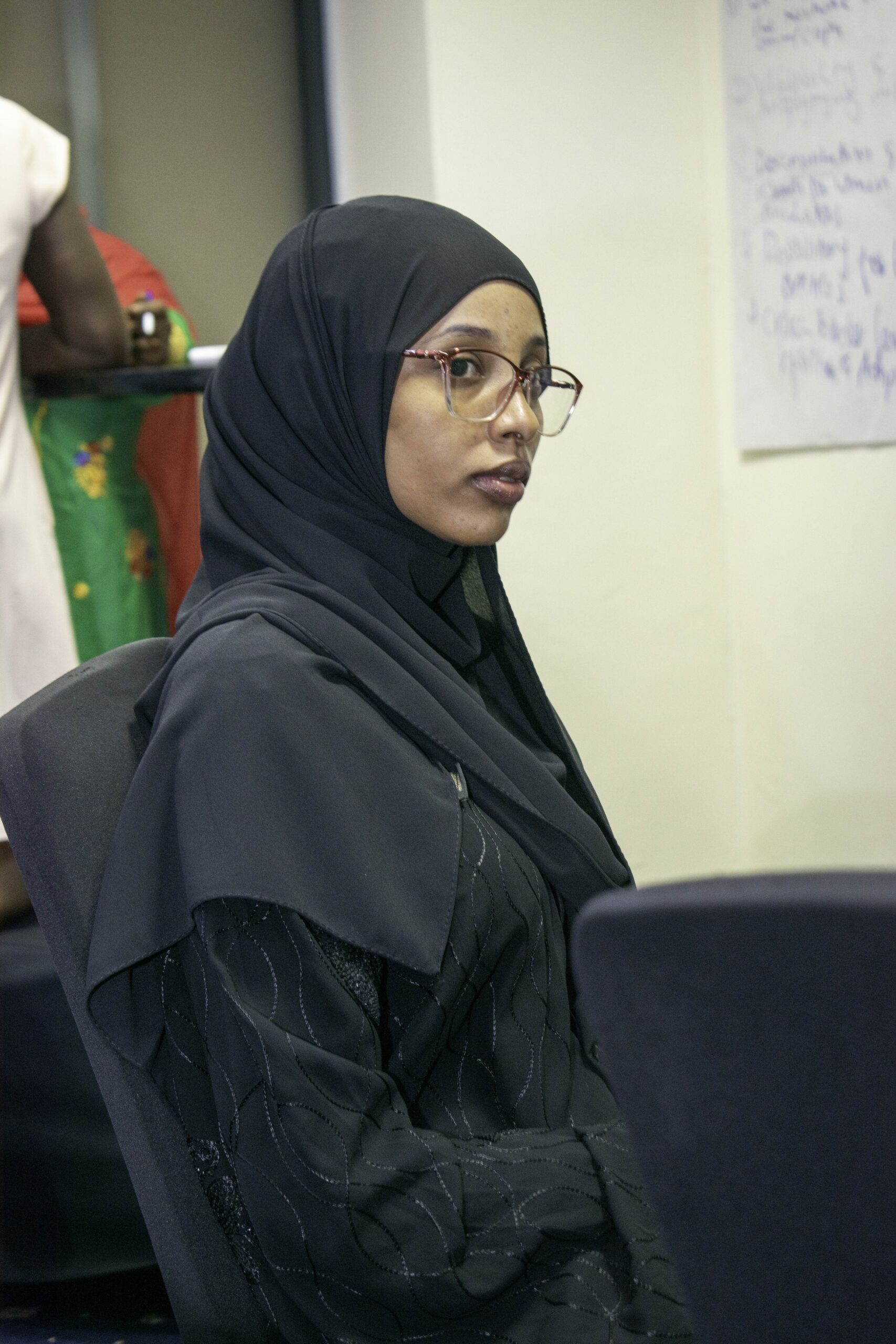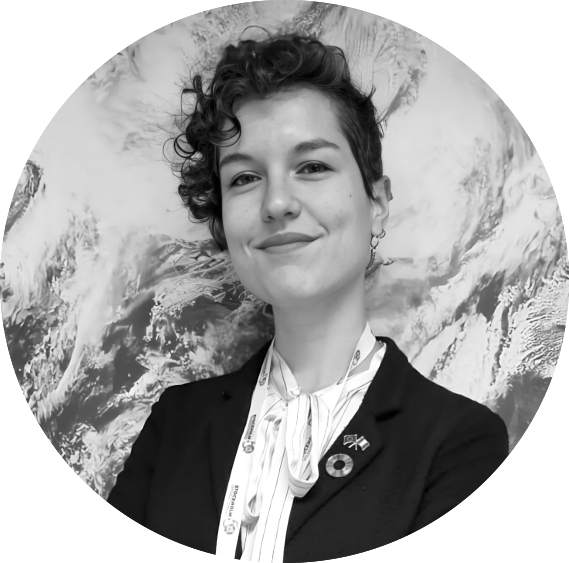IN BRIEF
Peace processes are complex by nature — and that’s the point. At our Nairobi workshop, 18 women mediators from the Horn of Africa came together to reflect, connect, and push for change. The message was clear: building a regional platform for women mediators isn’t just aspirational, it’s an achievable and necessary step toward inclusive and effective peace efforts. It’s time to act.
It’s complex, and that’s the point
On our workshop for women mediators in the Horn of Africa
There’s always a degree of discomfort when meeting someone new or reconnecting after a long time. Conversations don’t always flow – especially in groups – whether you’re an extrovert or not. The disorder, the overlapping voices, the stretched-out time: group interactions can be energizing, but also overwhelming. Yet, that discomfort is the sign of a more nuanced dynamic: learning to navigate complexity.
Similarly, peace processes and mediation efforts rarely follow a linear path or a steady pace. Those of us who work in this space know this well. We operate within overlapping crises, contradictory narratives, a multitude of actors seeking to be heard and coexisting truths without resolution, always on the edge of escalation.
Reflecting on Women Mediators’s Efforts in the Horn of Africa
This complexity was front and center during the regional workshop that we, as AP, organised in Nairobi, on March 11 and 12, bringing together 18 women mediators from across the Horn of Africa. The workshop was part of the “Towards a Regional Network of Women Mediators for the Horn of Africa” project, jointly executed with the Muslim Women’s Advancement of Rights and Protection and funded by the Italian Ministry of Foreign Affairs and International Cooperation.
The project was an invaluable opportunity to bring together, over a period of four months, women from diverse backgrounds, countries, age groups, and levels of experience into a shared, safe space for reflection. It was a chance to critically examine what works, what does not, and how best to move forward.
A Timely Moment for Reflection
The timing could not have been more fitting. The initiative aligns with the Women, Peace, and Security (WPS) Agenda, whose 25th anniversary this year offers a timely opportunity to pause and analyse the progress of the WPS Agenda. That is, the perfect occasion to separate meaningful achievements from just rhetoric.
Throughout the workshop, I was struck by participants sharing perspectives that are often overlooked. Stories emerged that highlighted the intersection of women’s peacebuilding efforts and, for instance, activists with disability and from indigenous communities. There was also a strong focus on the younger generation of women peacebuilders and mediators meeting more seasoned practitioners, all sharing the unique realities of their respective contexts – Ethiopia, Kenya, Somalia, Somaliland, South Sudan, and Sudan. These joint voices underscored the need for sustained mentorship and the importance of “passing the baton” to ensure long-term, intergenerational impact.
There was also the human aspect that emerged during the convivial dinners and the tea breaks – spaces that should deserve the spotlight for how meaningfully they help to forge a sense of trust and collegiality, when we engage with one another, and we are truly reminded of our shared humanity.
From discussion to action
In the context of the Horn of Africa – where a dedicated regional women mediator platform has yet to be established – the workshop asked the tough questions: what has been done so far to establish regional women mediator networks? What lessons can be drawn from these efforts? How can obstacles to women’s meaningful participation be overcome in both formal and informal peace processes? How do we build resilient synergies that truly support progress, mentorship, and localisation? Which efforts are useful and is there a risk of duplicating efforts?
For me, one clear takeaway from this workshop, and from the project as a whole, is that we, as women working in the mediation field, do not want to keep repeating the same things over and over again, without action. Advocacy is essential, but we already know the statistics about the state of the WPS Agenda, and merely identifying problems is not enough – we need real, sustainable, and inclusive systems and solutions. Or as one participant put it: “It is just a matter of implementing it.”
The paradox of peacebuilding and…What’s next?
I believe the phrase that best captures this week in Kenya and AP’s project is: “What’s next?”
And this brings us back to our initial discomfort, to the paradox of peacebuilding: the deeper we engage with its complexity, the more nuances we uncover. And that very discomfort can be a catalyst, pushing us to reflect more honestly and act more boldly. So, what this mission has reiterated for me is that acknowledging the problem isn’t enough. Awareness must lead to action.
The discussions in Nairobi made clear that fostering a regional platform of women mediators in the Horn of Africa is not just a vision — it’s an achievable and necessary step toward inclusive and effective peace efforts. Now, the task ahead is clear: shift from dialogue to action, from ideas to implementation.


